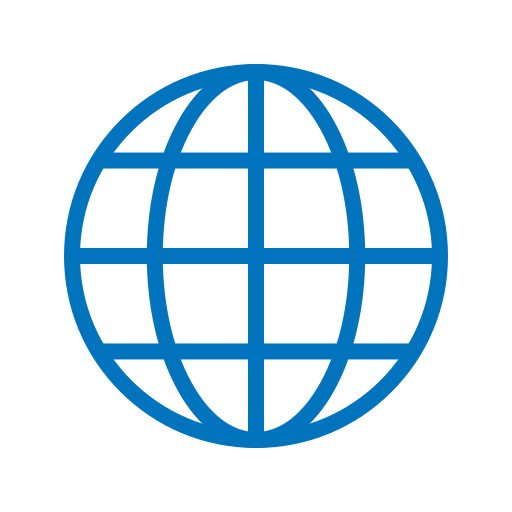- Home
- /
- SEBI CSCRF – Our...
SEBI's New Cybersecurity Mandate
Stay compliant and protect your assets with iValue’s comprehensive solutions
SEBI CSCRF Overview
The Securities and Exchange Board of India (SEBI) has introduced stringent cybersecurity guidelines to safeguard the financial market. As a SEBI-regulated entity, you need to comply with these new standards.
SEBI’s Cybersecurity and Cyber Resilience Framework (CSCRF) is a landmark mandate ensuring that Regulated Entities (REs) strengthen their cyber posture, minimize risks, and safeguard investor trust. With SEBI’s latest clarifications (Aug 28, 2025), the framework now brings greater clarity, flexibility, and proportionality in how enterprises implement cyber resilience.
At iValue, we help enterprises interpret, operationalize, and comply with CSCRF while optimizing cost, scalability, and governance.
- Mandatory Security Operations Centre (SOC) implementation
- Regular Vulnerability Assessment and Penetration Testing (VAPT)
- Secure Software Development Life Cycle (SSDLC) adherence
- Data protection and encryption measures
- Cyber Capability Index (CCI) assessments
iValue Comprehensive Solutions
iValue translates SEBI’s CSCRF mandates into actionable solutions with the right mix of services, consulting, and OEM technologies.
Secure Software Development (SSDLC)
Consulting and tools to embed security into the development lifecycle, with DevSecOps pipelines that reduce application-level risks.
Powered by: Opentext, Dynatrace, CyberArk
SOC Implementation
End-to-end SOC design, implementation, and 24×7 monitoring for threat detection, log correlation, and Market-SOC integration (where applicable).
Powered by: Checkpoint, SentinelOne, Arista, Keysight, Forcepoint
SBOM Management
Comprehensive SBOM generation and lifecycle management for transparency in third-party and open-source components, minimizing supply chain risks.
Powered by: Opentext, Dynatrace, Confluent, ProGIST
Data Protection & Resilience
Enterprise-grade encryption, backup, and disaster recovery solutions, along with zero-trust segmentation and high-availability architectures.
Powered by: Thales–Imperva, Rubrik, Netskope, Supermicro, Cloudera
Incident Response & Crisis Management
Crisis playbooks, tabletop exercises, and consulting to align with SEBI’s Cyber Crisis Management Plan (CCMP) requirements.
Powered by: SentinelOne, Checkpoint, Tenable
VAPT & Audit Support
Regular vulnerability assessments, penetration testing, and audit preparation with summary reporting for SEBI compliance and confidentiality assurance.
Powered by:Tenable, Keysight, SentinelOne
Third-Party Risk & CCI Assessments
Structured evaluation of vendor ecosystems with Cybersecurity Capability Index (CCI) assessments and IT Committee–aligned frameworks.
Powered by: CyberArk, Forcepoint, Checkpoint
Compliance & Certification Readiness
Advisory support for ISO 27001 readiness, NCIIPC mapping, and governance alignment to simplify CSCRF compliance audits.
Powered by: Opentext, Thales–Imperva, CyberArk
Why Choose iValue India?
At iValue India, our team of cybersecurity experts collaborates closely with your organization, employing a multifaceted approach that includes in-depth consultations, interactive sessions, comprehensive analysis of existing protocols, and rigorous technical assessments. This thorough methodology enables us to address your unique cybersecurity challenges effectively. To support your ongoing digital evolution, iValue India brings together a powerful combination of extensive cybersecurity expertise, profound industry knowledge, and a team of highly skilled professionals who deliver both innovative strategies and practical solutions. Our core strengths lie in our ability to not only ensure compliance with regulatory requirements but also to significantly enhance your overall cybersecurity maturity. By leveraging our diverse capabilities, we empower your organization to navigate the complex landscape of cybersecurity with confidence and resilience.
- Comprehensive risk assessment and compliance reporting
- Implementation of cutting-edge SOC tools and technologies
- Robust data protection and encryption solutions
- Advanced identity and access management systems
- Continuous improvement and monitoring services
- Expert guidance on SEBI compliance and cybersecurity best practices
FAQs: SEBI CSCRF and iValue Support
What is SEBI's Cybersecurity and Cyber Resilience Framework (CSCRF)?
The CSCRF is a regulatory framework issued by SEBI to ensure that Regulated Entities (REs) strengthen cybersecurity, adopt resilient IT practices, and safeguard investor confidence. It defines mandatory controls across monitoring, incident response, audits, and governance.
Who needs to comply with SEBI's CSCRF?
CSCRF applies to all SEBI-regulated entities including:
Stock exchanges, depositories, clearing corporations
Mutual funds and AMCs
Brokers, trading members, portfolio managers
Investment advisors and research analysts
The applicability depends on their size and assets under management.
What changed in SEBI’s August 2025 clarifications to CSCRF?
Key updates include:
- New Principles of Exclusivity and Equivalence to avoid overlapping compliance.
- Narrowed definition of “critical systems” (focused on core network segments).
- Zero-trust flexibility – default-deny is no longer mandatory.
- Mobile app security made recommendatory.
- Market-SOC exemptions for smaller REs with their own SOC.
- Audit reporting relaxed – only summaries are required.
- Portfolio manager thresholds revised (₹3,000 Cr and above).
What are the key requirements of SEBI's CSCRF?
The key requirements include:
- Implementation of a Security Operations Centre (SOC)
- Regular Vulnerability Assessment and Penetration Testing (VAPT)
- Adherence to Secure Software Development Life Cycle (SSDLC)
- Use of Software Bill of Materials (SBOM)
- Robust data protection and encryption measures
- Regular auditing and compliance checks
- Cyber Capability Index (CCI) assessments
Is ISO 27001 certification mandatory under CSCRF?
No. Under the new clarifications, ISO 27001 certification is recommended but not mandatory. Entities can still benefit from aligning with ISO 27001 for structured risk management.
What is a Security Operations Centre (SOC) and why is it mandatory?
A Security Operations Centre (SOC) is a centralized unit that deals with security issues on an organizational and technical level. SEBI mandates SOC implementation to ensure continuous monitoring and real-time threat detection, enhancing the overall cybersecurity posture of regulated entities.
How often should we conduct Vulnerability Assessment and Penetration Testing (VAPT)?
SEBI mandates regular VAPT, especially after significant software releases or upgrades. The exact frequency may vary based on your organization’s risk profile and the nature of changes to your IT infrastructure.
What is a Software Bill of Materials (SBOM) and why is it important?
An SBOM is a formal record containing the details and supply chain relationships of various components used in building software. It’s critical for managing software supply chain risks and ensuring transparency in the software development process.
What is the Cyber Capability Index (CCI)?
The Cyber Capability Index (CCI) is a benchmarking tool used to assess an organization’s cybersecurity resilience. It evaluates various aspects of cybersecurity practices and provides a quantitative measure of an entity’s cybersecurity preparedness.
What are the consequences of non-compliance with SEBI's CSCRF?
Non-compliance with SEBI’s CSCRF can result in regulatory actions, including penalties, suspension of trading activities, or revocation of licenses. Moreover, inadequate cybersecurity measures can lead to data breaches, financial losses, and reputational damage.
How soon must organizations implement the clarified CSCRF requirements?
SEBI expects regulated entities to begin compliance immediately, with audits reflecting the clarified requirements in the current reporting cycle. iValue helps accelerate adoption with assessment, gap analysis, and fast-track implementation services.
How does CSCRF impact small and mid-sized entities differently?
SEBI has introduced proportional compliance:
Self-certification REs – Up to ₹3,000 Cr AUM
Small-size REs – ₹3,000 Cr to ₹10,000 Cr
Mid-size REs – Above ₹10,000 Cr
The scope of SOC integration, audits, and reporting obligations vary based on size classification.
What is the role of the IT Committee in CSCRF compliance?
The IT Committee now plays a central role in:
Approving zero-trust and network segmentation approaches
Reviewing third-party and supplier security assessments
Validating incident response and crisis management plans
This ensures decisions are risk-based and contextual rather than prescriptive.
How does iValue help enterprises achieve CSCRF compliance?
iValue provides:
SOC services for monitoring and threat intelligence
VAPT & audit support to meet SEBI’s testing requirements
SSDLC & SBOM solutions for secure development and transparency
Data protection, encryption, and backup tools for resilience
CCI assessments and third-party risk frameworks
Compliance consulting & ISO readiness services
We partner with leading OEMs like SentinelOne, Forcepoint, Check Point, Opentext, Dynatrace, Rubrik, and Confluent to deliver these outcomes.
Latest Resources

Cybersecurity Regulations In India 2025: A Comprehensive Guide
Explore India’s cybersecurity regulations in 2025, including CSCRF, Telecom Cyber Security Rules, and the DPDP Act. Learn compliance best practices for your business.

Key Challenges in Implementing SEBI’s New Cyber Security Guidelines
Technical Challenges in SEBI Cybersecurity Implementation: Encryption, SOCs, and Tool Integration The SEBI guidelines have been crafted to focus on resilience which is captured in the title ‘Cyber Security

SEBI Cybersecurity & Cyber Resilience Framework (CSCRF) Explained: Strengthening Investor Protection
Overview of SEBI’s Cybersecurity & Cyber Resilience Framework (CSCRF) India’s financial sector has always been an attractive target for cyberattackers. RBI’s Financial Stability Report claims that the financial sector faced
